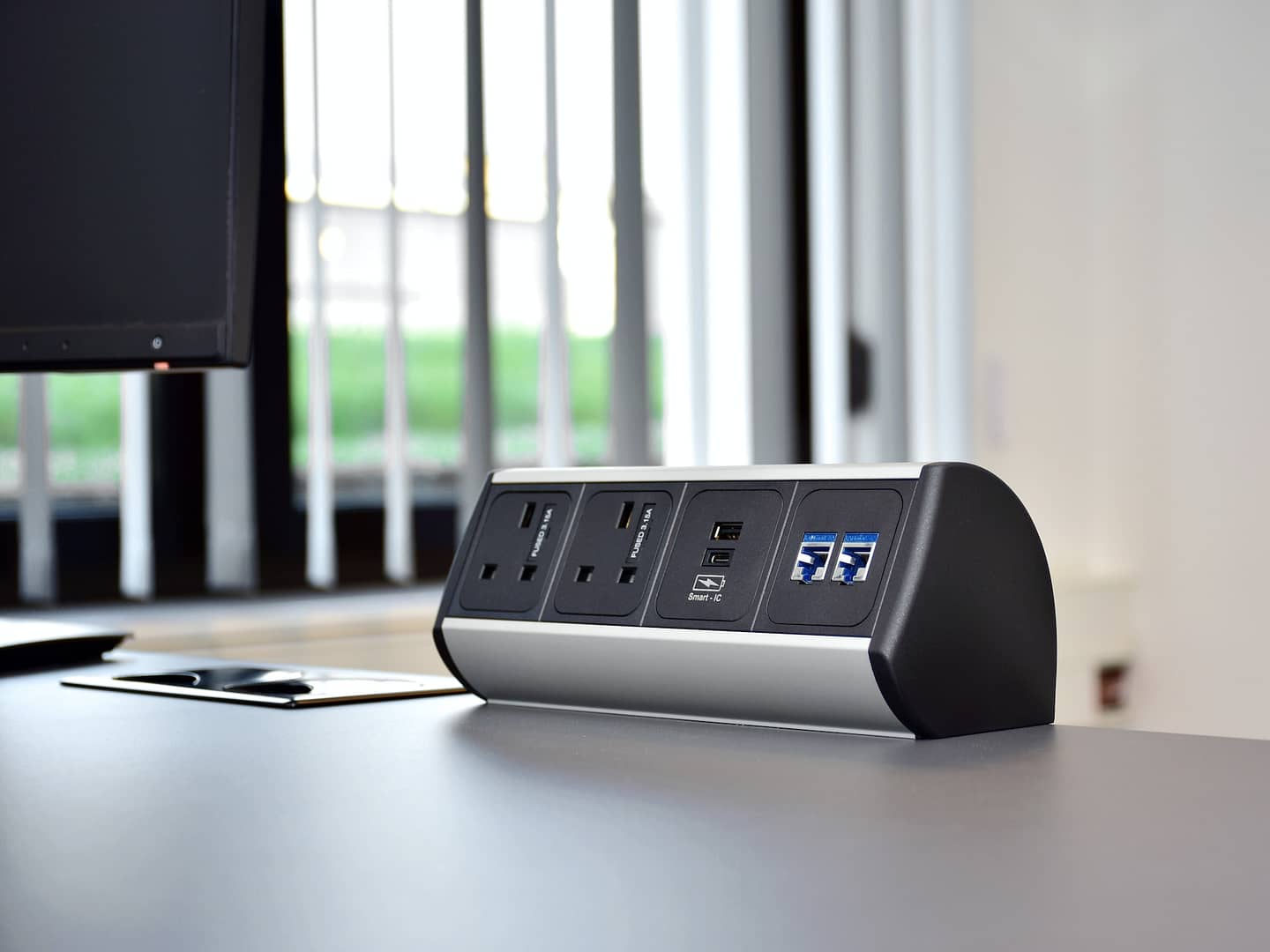If you’ve ever been curious about electrical safety at work, you’re in the right place. In this comprehensive guide, we’ll explore the fundamentals of electrical safety, especially tailored for non-electricians. Whether you’re a homeowner, an office worker, or simply someone looking to understand the basics of staying safe around electricity, this guide is for you.
Understanding the Basics
Before we dive into the intricacies of electrical safety, let’s start with some fundamental principles and the five crucial electrical safety rules that every non-electrician should know. These rules form the foundation of staying safe around electrical systems and devices.
The Five Electrical Safety Rules
Respect the Power: Electricity is a formidable force that demands our respect. Never underestimate its potential danger. Even small electrical devices can deliver a lethal shock if not handled correctly.
Avoid Overloading Circuits
Overloading circuits by plugging in too many devices can lead to overheating and fires. Make sure you know the capacity of your electrical outlets and avoid using too many devices simultaneously.
Keep it Dry
Electricity and water are a dangerous combination. Avoid using electrical devices in wet or damp environments. If an electrical device comes into contact with water, be sure to turn off the power source before attempting to handle it.
Use Proper Tools
When working with electrical systems, always use the right tools and equipment. Insulated tools, safety gloves, and eye protection are essential when dealing with electricity. Never use makeshift tools or attempt to fix electrical issues without the proper training.
Respect the Experts
If you’re not trained to handle electrical work, it’s vital to respect the expertise of qualified electricians. When in doubt, always consult a professional to avoid potential hazards.
Electrical Hazards for Non-Electricians
Understanding electrical hazards is crucial for everyone, not just electricians. These hazards can lurk in various settings, from your home to your workplace. Let’s explore some common scenarios and how to stay safe.
Home Electrical Safety
Your home is where you should feel the safest, but it can also be a place where electrical hazards are prevalent. Here are some tips to ensure electrical safety at home:
Regular Inspections
Periodically check your home’s electrical system for signs of wear and tear. Look for frayed cords, damaged outlets, or switches. If you notice any issues, have them addressed promptly.
Childproofing
If you have children at home, make sure to childproof your electrical outlets. Outlet covers and cord organisers can prevent accidents and keep curious little ones safe.
Extension Cords
While convenient, extension cords should not be a permanent solution. If you find yourself relying on extension cords regularly, consider adding more outlets to avoid overloading circuits.
Workplace Electrical Safety
The workplace is another area where electrical hazards can pose significant risks. Even if you’re not an electrician, you should be aware of potential dangers and follow safety protocols.
Training
Many workplaces offer electrical safety training for employees. Take advantage of these opportunities to familiarise yourself with the specific electrical hazards in your workplace.
Reporting Issues
If you notice faulty electrical equipment or exposed wires at your workplace, report them to the appropriate personnel immediately. Don’t attempt to fix electrical issues on your own unless you’re qualified to do so.
Emergency Procedures
Familiarise yourself with the emergency procedures in case of electrical accidents. Know the location of fire extinguishers, emergency shut-off switches, and emergency exits.
Outdoor Electrical Safety
Electrical safety isn’t limited to indoor spaces. Outdoor environments present their own set of hazards, such as power lines and electrical equipment.
Stay Clear of Power Lines
Be cautious when working near power lines. Always assume that power lines are energised, and maintain a safe distance. Accidental contact with power lines can have severe consequences.
Equipment Safety
If you’re using electrical equipment outdoors, ensure that it’s designed for outdoor use. Keep connections dry and off the ground to prevent electrical shock.
Storm Safety
During storms, be mindful of the risk of electrical surges and outages. Unplug sensitive electronics to avoid damage, and stay indoors to avoid lightning.
Everyday Electrical Safety
Now that we’ve covered the basics and explored electrical safety in different settings, let’s dive into everyday scenarios where electrical safety matters.
Electronics and Appliances
In our modern world, we’re surrounded by electronic devices and appliances. These everyday items can pose electrical hazards if not handled properly.
Unplugging
When you need to unplug an electronic device or appliance, always pull the plug, not the cord. Yanking the cord can damage it, leading to potential electrical hazards.
Power Strips
Power strips are convenient for plugging in multiple devices. However, overloading a power strip can lead to overheating and fires. Be mindful of how many devices are connected to a single strip.
Cords and Cables
Ensure that cords and cables are not pinched or trapped under heavy objects. Pinched cords can fray and create potential electrical dangers.
DIY Electrical Work
While some electrical tasks are best left to the professionals, there are simple DIY projects that you may want to tackle. Here are a few safety tips for those occasions:
Turn Off Power
Before working on any electrical project, make sure to turn off the power at the circuit breaker or fuse box. Use a voltage tester to confirm that the power is off.
Follow Instructions
If you’re following a DIY electrical project or repair, adhere to the instructions carefully. Cutting corners or improvising can lead to dangerous situations.
Ask for Help
If you’re uncertain about a DIY electrical task, don’t hesitate to seek help from a qualified electrician. It’s better to be safe than sorry.
Emergencies and First Aid
It’s essential to know what to do in case of an electrical emergency. Here are some steps to keep in mind:
Power Outage
During a power outage, use flashlights or battery-powered lanterns instead of candles. Candles pose a fire hazard, and a power outage may be due to electrical issues.
Electrical Shock
If someone experiences an electrical shock, call for medical help immediately. Don’t touch the person if they are still in contact with the electrical source. Turn off the power source if possible, using a non-conductive object.
Fire Safety
In case of an electrical fire, use a fire extinguisher designed for electrical fires. Never use water, as it can conduct electricity and worsen the situation.
Making an Accident at Work Claim with National Claims
At National Claims, we understand that accidents can happen, even when you follow all safety protocols diligently. If you’ve experienced an electrical accident at your workplace and believe it was due to negligence or hazardous conditions, we’re here to help you navigate the process of making an accident claim.
Our team of experienced professionals is well-versed in handling workplace accident claims, including those related to electrical incidents. We’ll guide you through the claims process, ensuring that you receive the compensation you deserve for any injuries or damages sustained.
To start your claim, simply reach out to us via our website or contact our dedicated team. We’ll provide you with the necessary information and support, making the process as smooth and stress-free as possible.

Conclusion
Electrical safety is not the sole responsibility of electricians. As non-electricians, we play a vital role in ensuring our safety and that of those around us. By understanding the fundamental principles of electrical safety, recognising potential hazards in our homes and workplaces, and following best practices for everyday electrical situations, we can significantly reduce the risks associated with electricity.
Remember the five electrical safety rules: Respect the Power, Avoid Overloading Circuits, Keep it Dry, Use Proper Tools, and Respect the Experts. These rules will serve as a constant reminder of the importance of electrical safety in your everyday life.
By adhering to these guidelines and staying informed, you can enjoy the convenience of electricity while minimising the risks. Always prioritise safety, and when in doubt, seek guidance from a qualified electrician.
And, in case of a workplace electrical accident, know that National Claims is here to assist you in making a claim and ensuring you receive the support you need during the recovery process. Safety is a shared responsibility, and together, we can create a safer environment for all.
Contact us to get started on your claim today and speak to one of our claims specialists to help you.
Click below to see why we are one of the most trusted claims management companies in the UK.

We’re proud of our excellent customer reviews
We thrive on delivering exceptional service and ensuring our clients’ satisfaction. Don’t just take our word for it. Check out some of our independent reviews to see what our clients have to say.
Excellent

This firm is excellent, they sorted out my car pay out and injury claim very fast, they always communicate with you all the time.

My accident case was dealt with confidence and with great result of the outcome, especially James kept me informed all the time.

I was very impressed at the way my inquiry was treated. I was listened to attentively and everything I needed to know was explained to me.






